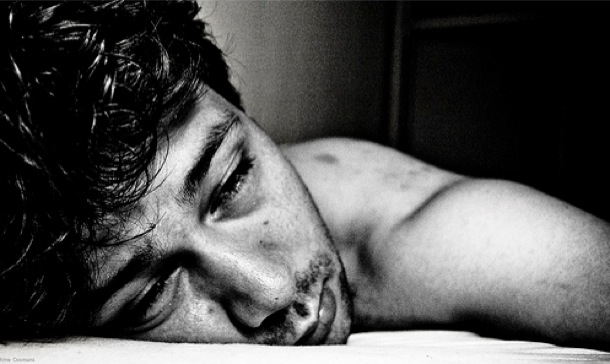"25 year old female, tired, grouchy, can't sleep & fed up"
Seeing the word insomnia will give all EMS who read it a wry smile. A smile of knowing. A smile of understanding. A smile of tiredness. In fact it isn't just EMS. All emergency services. All shift workers alike. Insomnia is something large numbers of us live with and cope with.

'Insomnia is repeated difficulty in getting to sleep, staying asleep or getting enough good quality sleep, despite adequate opportunity, which leads to some form of impairment of performance of well being during the daytime. If it occurs regularly or over a long period of time, it's called chronic insomnia.'I for one suffer with chronic insomnia. Self diagnosed yes, but with no more than 4 hours total sleep a night at least 6 out of 7 days that is what i'm going with. I've known for a number of years that I've had trouble sleeping but having had a few weeks off work and not feeling refreshed and not getting good rest made me realise the semi-permanent impact shift work has had on me. Shift work isn't the sole cause of insomnia but it is a common denominator amongst the emergency service workers. You'd think that having been awake for 24 hours and done a gruelling 12 hour night shift sleep would come easy. Well it doesn't, and I'm not alone. Getting to sleep is hard enough, but staying asleep is the bigger problem. Stress and worry are big contributors and combined with a pre-disposition to not sleeping well, you're left awake unable to sleep because you're worried about not getting enough sleep and stressed as to how this will effect you. Then, your shift pattern changes. After 4 shifts of nights, your body clock just about adjusted, you now need to fall into a normal sleeping pattern in preparation for an early shift in a day and half's time. This routine continues throughout any shift workers career. Grim!
For me, the major worry with insomnia is how I am at work and how my colleagues are at work. After a prolonged period of poor sleep you just feel drained. Physically and mentally. You exist rather than actively do. You float through you shift not really knowing how you got to the end. Driving on blue lights when physically exhausted is scary but at least you have the lights and sirens to keep your eyes open. When not on lights it's dangerous. I'm sure fatigue plays a huge part in EMS RTC's and I don't like to admit it but I have fallen asleep behind the wheel at traffic lights in the past. Thank god it was at traffic lights. Driving home after a 12 hour night shift is a hairy experience too. Fighting the body every step of the way to stay awake. Driving aside, you're expected to treat every patient you come into contact with, with the same professionalism and courtesy. You're expected to make on the spot decisions that in reality can mean life or death. If your husband, wife, child, parents or friends were gravely ill, how happy would you be knowing the crew attending had been awake for 22 hours, were exhausted, hadn't eaten and hadn't had a break for 10 hours? Would it fill you with confidence? It wouldn't me. Personally I don't think enough support is available, 'being tired' isn't a reason to call in sick and with the strictness and disciplinary procedures around absence being a very contentious issue it is of no surprise we just put up and shut up! We make do. We drink coffee (by the bucket load), take pro-plus, play loud music, keep the window open or in extreme cases take matters into our own hands.

Staff in London will be aware of the name Lorna Lambden. Lorna was a paramedic who worked Camden. I knew her and had worked with her on both ambulances and when she worked as an FRU. She was a lovely girl. Always smiling. Always happy to see you. Always tired. Like many, she suffered with sleep problems due to the effects of a 12 hour rota with a constant change in shift. In an effort to get some sleep on her rest days she bought some sleeping pills off the internet. Tragically, she suffered a heart attack brought on by the medication and she died. Her body was discovered two days later by her boyfriend. For the full article click the link. This tragic loss of life is symptomatic of the problems insomnia can cause. The desperation to get some sleep can drive people to extreme and desperate measures. In Lorna's case it was non-prescription medication. Obviously the dangers of buying medication not prescribed by a GP are painfully evident but that is what she thought she had to do to get some sleep. Possibly because GP's commonly prescribe an anti-depressant which in small doses works as a sleeping tablet and like me, she wouldn't want a prescription for anti-depressants on her medical records. I don't know what the solutions are. I've tried all sorts to get a good nights sleep but little works. What I do know is that whilst working a varying 12 hour shift rota with no breaks is deemed acceptable, little will change and until insomnia is regarded as being as debilitating and genuine as stress and depression we will continue to plod on regardless. Insomnia at work is talked about with an air of humour about it, being tired is almost vaunted as right of passage in the emergency services and is something that is seen as 'just the way it is'. I think that speaks volumes about the length of time it's been ignored.
And just so you know: People who regularly get less than six hours sleep increase their chance of dying over a 25 year period by 12%. Bummer!